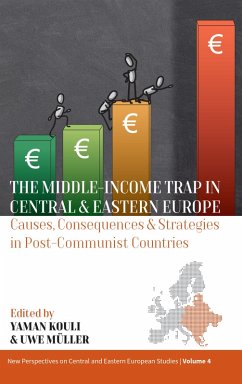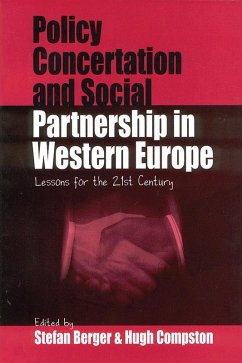
Demonstrating Reconciliation (eBook, PDF)
State and Society in West German Foreign Policy toward Israel, 1952-1965

PAYBACK Punkte
9 °P sammeln!
During the 1950s and early 1960s, the West German government refused to exchange ambassadors with Israel. It feared Arab governments might retaliate against such an acknowledgement of their political foe by recognizing Communist East Germany-West Germany's own nemesis-as an independent state, and in doing so confirm Germany's division. Even though the goal of national unification was far more important to German policymakers than full reconciliation with Israel in the aftermath of the Holocaust, in 1965 the Bonn government eventually did agree to commence diplomatic relations with Jerusalem. ...
During the 1950s and early 1960s, the West German government refused to exchange ambassadors with Israel. It feared Arab governments might retaliate against such an acknowledgement of their political foe by recognizing Communist East Germany-West Germany's own nemesis-as an independent state, and in doing so confirm Germany's division. Even though the goal of national unification was far more important to German policymakers than full reconciliation with Israel in the aftermath of the Holocaust, in 1965 the Bonn government eventually did agree to commence diplomatic relations with Jerusalem. This was due, the author argues, to grassroots intervention in high-level politics. Students, the media, trade unions, and others pushed for reconciliation with Israel rather than the pursuit of German unification. For the first time, this book provides an in-depth look at the role society played in shaping Germany's relations with Israel. Today, German society continues to reject anti-Semitism, but is increasingly prepared to criticize Israeli policies, especially in the Palestinian territories. The author argues that this trend sets the stage for a German foreign policy that will continue to support Israel, but is likely to do so more selectively than in the past.
Dieser Download kann aus rechtlichen Gründen nur mit Rechnungsadresse in A, D ausgeliefert werden.













